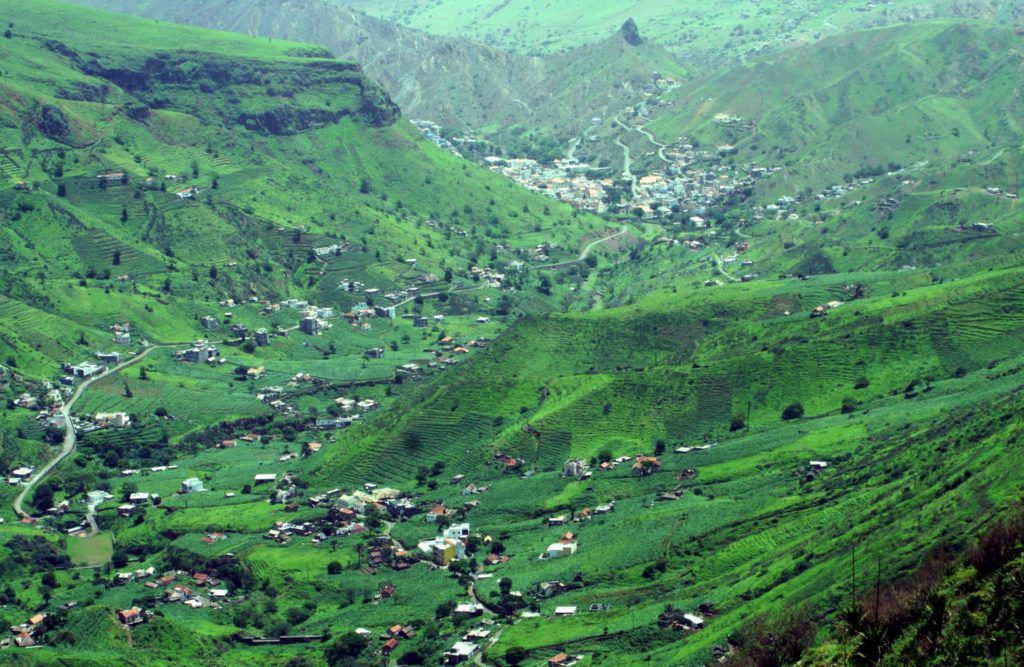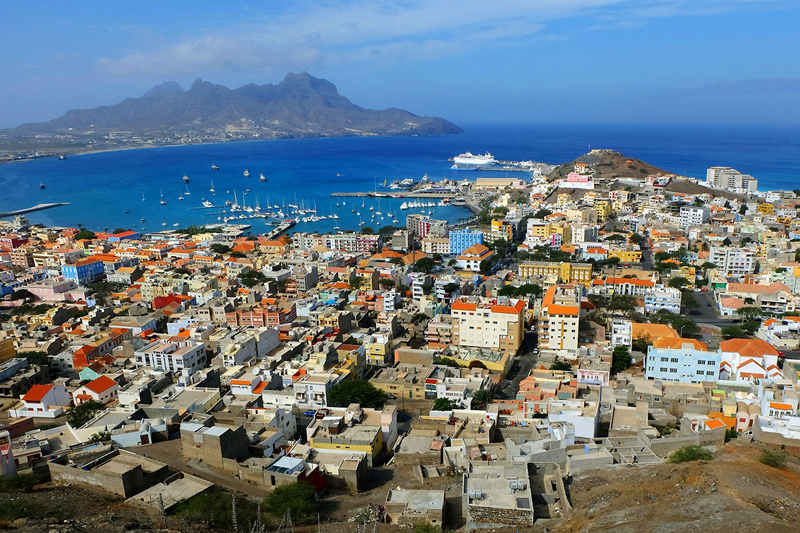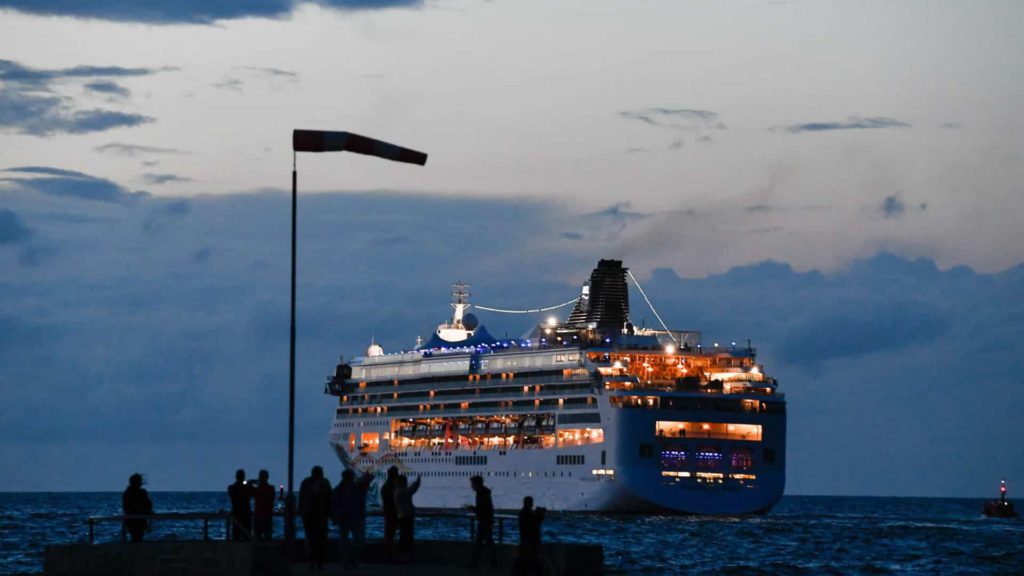The aim is to guarantee protection and safeguard rights under the labor contract for Cape Verdean workers who want to join labor mobility
The governments of Cape Verde and Portugal will sign on Wednesday in Praia, a memorandum of understanding on Labor Mobility, at a time when the recruitment actions of Portuguese companies in the archipelago are multiplying, it was announced.
Read also: Cape Verde’s President wants “new paths” in relations with Portugal
According to a note from the Cape Verdean government, the protocol will be signed at the start of the three-day official visit that Portugal’s Minister of Labor, Solidarity and Social Security, Ana Mendes Godinho, will make to the archipelago, and “takes place in the context of strengthening cooperation ties in the Labor and Social Security sector,” without giving further details.

For the Cape Verdean government, the agreement will be signed by the Minister of State and Minister of Family, Inclusion and Social Development, Fernando Elísio, who also holds the Labor portfolio.
The Prime Minister of Cape Verde, Ulisses Correia e Silva, had already announced on October 5 that the government was negotiating with Portugal an agreement that guarantees protection and safeguard of rights under the labor contract for Cape Verdean workers who want to join the labor mobility.
Read also: Cape Verde suggests converting debt of 600 M € to Portugal in investments
The announcement was made following the recruitment actions of Portuguese companies held in recent days in Cape Verde, the last of which on October 4, by Auto Viação Feirense, which wanted to hire 30 drivers and ended up gathering at the door of a hotel in Praia several hundred candidates.
On the island of São Vicente, two offers for 25 vacancies in hotels and tourism in Portugal and 75 for civil construction in Spain received more than 1,200 applications and the process had to be suspended, due to high demand.

“The government is working with the Portuguese government to define an agreement that guarantees a work contract with employers, that guarantees protection and social security, medical care protection, medication that is derived from the social security system for those who want to make the labor mobility to Portugal, can do so within a framework that guarantees rights,” said the head of government, questioned by journalists.
Also read: Cape Verdean museums with more visitors until June than in all of 2021
Without going into details, Ulisses Correia e Silva warned, however, that citizens who attempt emigration to Portugal through other expedients will not be covered by this framework of cooperation, integration and guaranteed rights, having to “assume their risks.”
“We are a free and democratic country, we cannot prevent people in their freedom to make their best choices,” he added.
The archipelago is facing a deep economic and financial crisis, stemming from the sharp drop in tourism demand – a sector that guarantees 25% of the archipelago’s Gross Domestic Product (GDP) – since March 2020, due to the covid-19 pandemic.

In 2020, there was a historic economic recession, equivalent to 14.8% of GDP, followed by a 7% growth in 2021 driven by the recovery of tourism demand. For 2022, due to the economic consequences of the war in Ukraine, namely escalating prices, the Cape Verdean government lowered the growth forecast from 6% to 4%.
The Cape Verdean President said on October 11 that it is time to make “profound changes” and that “it is urgent to comply with the Constitution,” arguing that emigration should not happen for lack of opportunities.
Read also: Cape Verde: Five UNESCO applications suspended, lack of funding
“For our young people, the search for a way of life in another country has to be by choice. Not because opportunities don’t exist, or even less because of a loss of hope in the country. In other words, also from this point of view, it is fundamental to ask if we are fulfilling the Constitution,” said José Maria Neves.
The leader of the African Party for the Independence of Cape Verde (PAICV), the largest opposition party in Cape Verde, this month blamed the MpD-led government for the wave of emigration that the country has been witnessing due to the “failure of policies” of the government.

“This emigration issue is a demonstration of the failure of the Government’s policies. The Government has not had policies that give young people guarantees, first of all, access to employment, access to income. And young people are looking for alternatives outside the country,” said Rui Semedo.
“It is the demonstration that the Government and its policies have failed and have not found answers to guarantee that young people work here and leave their contribution according to their training for the development of their own country. So they are forced, once again, to leave the country, to have to leave even, in search of a better solution,” he further criticized.
Read also: Cape Verde wants international partnership to fight cybercrime
For the leader of the largest opposition party, “politics and policies have failed” and “the government must take this into due account and create alternative conditions to ensure that young people have a dignified life within their own country.

The Cape Verdean Prime Minister and leader of the Movement for Democracy (MpD) said on September 7 on the island of Maio that there is no reason for emigration for lack of opportunities in Cape Verde, despite the crisis affecting the country, still with the economic consequences of covid-19, the inflationary crisis and four years of drought.
Also read: Cape Verdean museums with more visitors until June than in all of 2021
“Every investment of this kind [expansion of the port on the island of Maio, inaugurated on the occasion] has to open doors of hope and confidence, especially for young people. There are no reasons to leave Cape Verde, for forced emigration for lack of opportunities. We have to create all the reasons for our young people to stay in Cape Verde and invest in Cape Verde, believe in this country and make this country happen,” said Ulisses Correia e Silva.



